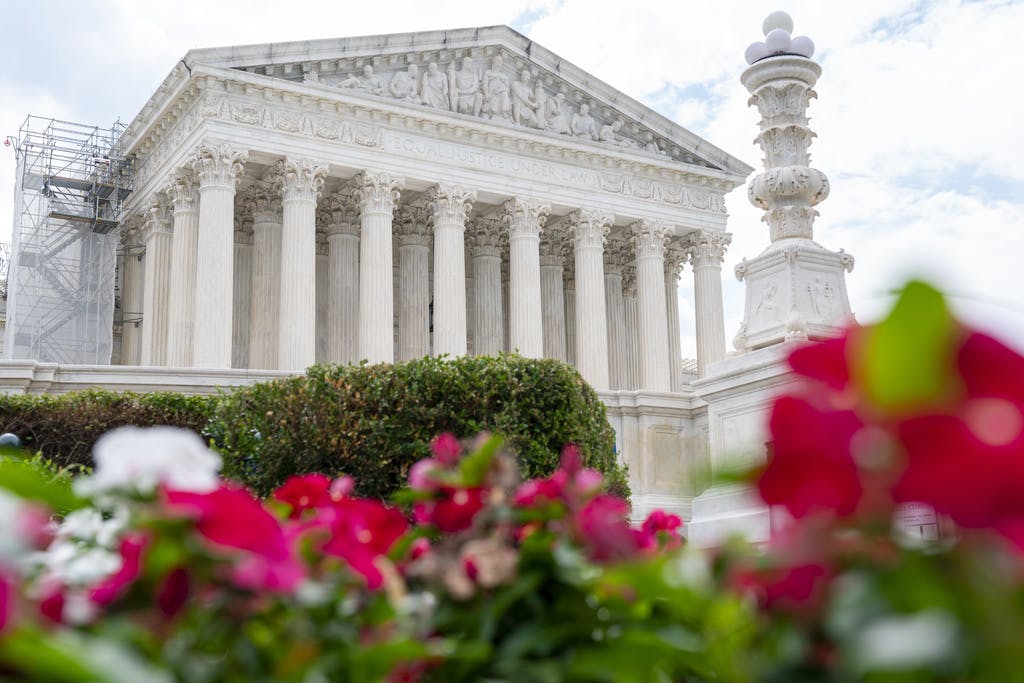Supreme Court To Hear a Case That Could Upend the ‘Administrative State’ in SEC v. Jarkesy
The case, arising from the Fifth Circuit, could reshape how administrative agencies litigate claims.

The Supreme Court today will hear another challenge to the “administrative state,” as a hedge fund founder sues the Securities and Exchange Commission in a multifaceted attack against the agency’s judgments and Congress’s constitutional authority to delegate power to agencies like the SEC.
The case arose from a judgment made by the SEC against an investment manager and conservative talk-radio host, George Jarkesy, in 2013.
The SEC found that Mr. Jarkesy had committed securities fraud and ordered him to pay $300,000 in fines and repay about $700,000 in illicit gains for misrepresenting the fund’s assets and investment safeguards in order to levee higher fees from investors.
Mr. Jarkesy petitioned the Fifth Circuit Court of Appeals to review the SEC’s ruling, and the Fifth Circuit issued a ruling that, if adopted, could be one of the most consequential administrative law decisions in recent history, affecting not just the SEC but other administrative enforcement agencies as well.
Although the effects on agencies would depend on the specifics of the ruling, agencies like the National Labor Relations Board, the Environmental Protection Agency, and the Postal Service could be affected.
The SEC appealed to the Supreme Court after the Fifth Circuit’s ruling, and the court granted certiorari in June in order to answer three questions posed by Mr. Jarkesy in the case.
First, the court agreed to address whether the SEC has the power to “initiate and adjudicate administrative enforcement proceedings seeking civil penalties,” and whether such proceedings violate the Seventh Amendment.
Second, the court will address whether Congress can constitutionally delegate power to the SEC to decide whether to pursue civil penalties via its own administrative courts or through district courts.
The third question the court will address is whether Congress has the power to give administrative law judges protection from removal that other members of that agency do not enjoy.
The constitutional issue surrounding the first question centers on the doctrine of “public rights.” Cases concerning public rights have traditionally offered an exception to the Seventh Amendment right to a trial by jury in certain circumstances.
Public rights are distinguished from private rights in that public rights are those that protect the public in common, understood by the court to mean rights that concern the functions of executive or legislative departments.
Private rights, by contrast, have been understood by the court to refer to the liability of one private individual to another. In cases concerning private rights, individuals are entitled to trials by jury.
The SEC argues in the case that the Constitution gives Congress the power to assign administrative courts the responsibility of adjudicating disputes that would have been unknown to common law courts at the time of the adoption of the Seventh Amendment.
Mr. Jarkesy argues that the public rights doctrine should be dissolved entirely because the right to a trial by jury was one of the main “flashpoints” in the American Revolution.
Critics of the status quo in this area, like two attorneys at the Institute for Justice, argue that in cases like Mr. Jarkesy’s, people are entitled to what they call a “real federal court.”
“Jarkesy is just one of many Americans whose rights hang in the balance,” the attorneys write for DC Journal. “The agency court in Jarkesy had a nearly spotless record — always ruling for the agency. When Jarkesy’s case went to trial, the agency had won the last 200 times.”
Mr. Jarkesy’s arguments concerning the second question are comparatively concise. His attorneys argue that giving the SEC or other agencies the power to choose between pursuing a remedy through an administrative court or a district court is an unconstitutional delegation of legislative power.
Regarding the protection of administrative law judges, the SEC argues that they need extra protections from removal in order to provide a fair process for adjudicating claims brought before them.
Mr. Jarkesy, though, argues that Congress has unconstitutionally limited the president’s power by having two tiers of protection for administrative law judges and others appointed to administrative agencies.
Chief Justice Roberts signaled some sympathy to this argument in 2010’s Free Enterprise Fund v. Public Company, in which he wrote for the majority that the president cannot “‘take Care that the Laws be faithfully executed’ if he cannot oversee the faithfulness of the officers that execute them.”
While the court has signaled some interest in revisiting questions surrounding the authority of administrative agencies this term, it’s not clear whether they will be willing to adopt the Fifth Circuit’s position, siding with Mr. Jarkesy on all questions.
Yet if the court did uphold the Fifth Circuit’s ruling, or even parts of it, it could reshape how not just the SEC carries out enforcement actions but at every agency where administrative law judges make rulings.

